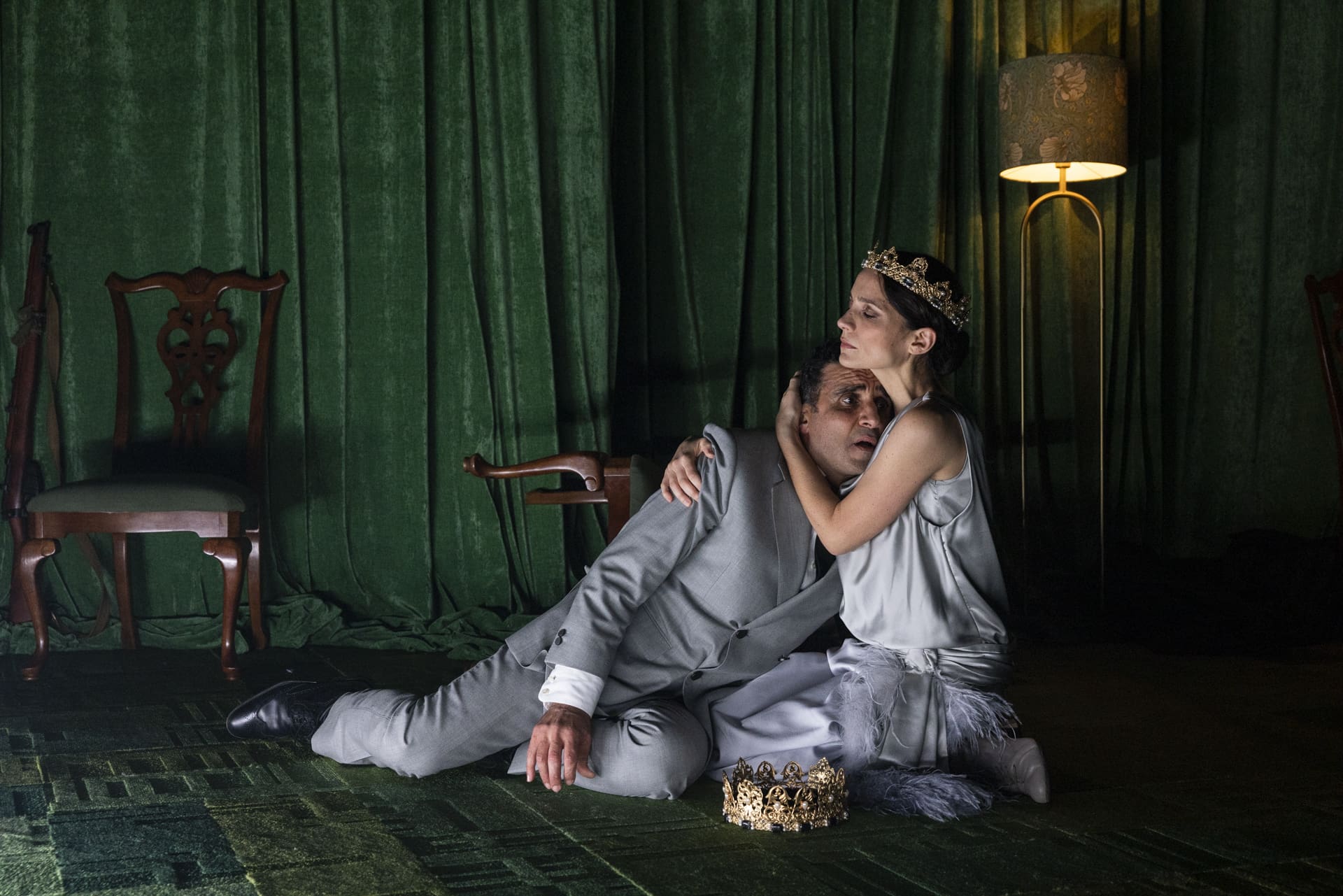The last time I saw a Bell Shakespeare production of Macbeth, it was a parody rendition of Andy Griffith’s beloved novel — Just Macbeth! I was seven years old, and my concentration did not lapse as the three young characters entered Shakespeare’s world, committed brutal regicide, faced an army of gnomes, pulverised their subjects, and wreaked absolute havoc. It was the first time I had ever tried Maltesers, and the night that Julia Gillard became Prime Minister. The first photo on our family camera roll is of me holding said Maltesers, grinning ear to ear in the Playhouse foyer.
The first Bell Shakespeare play for their 2023 season, however, is a Macbeth that stays truer to its roots. Despite the 1920s flapper dresses and green velvet drapes, the production captures the essence of Shakespeare’s original text: the agony of failed ambition.
The production, led by director Peter Evans and associate director Abbie-Lee Lewis, focusses on the Macbeths’ political demise — in his programme notes, Evans writes that he is “fascinated by the politics, the deception and double-speak.” This is a social drama, of a couple unmoored by their hunger for power, and of a court’s seams ripped into threads.
Anna Tregloan’s set and costume design effectively renders this political reading of Macbeth. The stage is shrouded in curtains of emerald velvet, the floor a parquetry of greenback-esque rectangles — I felt as if we were in a well-appointed cabinet room, replete with gold-plated lamps and Art Deco mahogany chairs. The costumes similarly ooze power: drawing from the military’s influence on interwar fashion, Tregloan outfits the cast in olive trench coats, plenty of shoulder pads, bowler hats, ruffles and long black dresses. The lighting, courtesy of Damien Cooper, is similarly impressive. While the first few acts are decorated by golden and white lamplight, the stage becomes bathed in red as Macbeth descends further into tragedy — we cannot escape the blood that he has drawn, and no amount of scrubbing will rid us of its stain.
However, Shakespeare’s magic is in his characters and the words they speak. Jessica Tovey’s Lady Macbeth is a standout: rather than the ruthless, bloodthirsty performances that we tend to associate with the character, Tovey plays a fragile Lady Macbeth from the outset. Though she first appears enthralled by the prospect of supreme power, this facade quickly crumbles — from her panic at Macbeth’s bloodied shirtsleeves, to her anguish towards his (substantial) breach of dinner party etiquette, and to her utter collapse in Act V scene i, Tovey delicately conveys the pain of Lady Macbeth’s tragic descent. James Lugton excels at playing all sides: his Duncan is noble and magnanimous, his Porter a well-paced bit of bathos, and his Seyton a faithful (though unremarkable) servant to the tyrant king. Where Macduff comes to Scotland’s aid, Jacob Warner plays the role with not only the poise and restraint that Macbeth lacks, but the humanity: informed of his family’s deaths, Warner imbues a pathetic vulnerability in the play’s avenger. Although the Three Witches (Rebecca Attanasio, Isabel Burton and Eleni Cassimatis) may have begun the play with a somewhat dispassionate performance, their entrance after the intermission is shocking and eerie — their mutterings are ominous, their cackling disquieting, and the sisters suitably weird.
When it comes to the play’s eponym, Hazem Shammas plays an uneasy Macbeth. Instead of an aggressive despot, Shammas’ Macbeth is awkward — and this works well. His speeches are babbled, his white business shirts become more sweat-stained and unbuttoned as the play unfolds, and his manic laughter teeters on the verge of tears. Shammas’ facial expressions are precise, and his wrinkled exclamations reveal the nuances of Macbeth’s torment. My only reservation is that at the play’s close, where this torment is at breaking point, Shammas’ tone affects the clarity of his enunciation. Perhaps this was deliberate, and perhaps my ears aren’t sharp enough, but I struggled to hear the powerful verse of Macbeth’s final speeches — clear diction is (in my view) essential, especially when Shakespeare’s words can seem so incomprehensible to modern audiences.
As I left the Opera House, and as I could finally speak of the play by name, I was shattered by the Macbeths’ demise: the production’s emotional power is fierce. In all, Bell Shakespeare’s Macbeth is haunting, visually delicious, and deftly shows how things fall apart.





